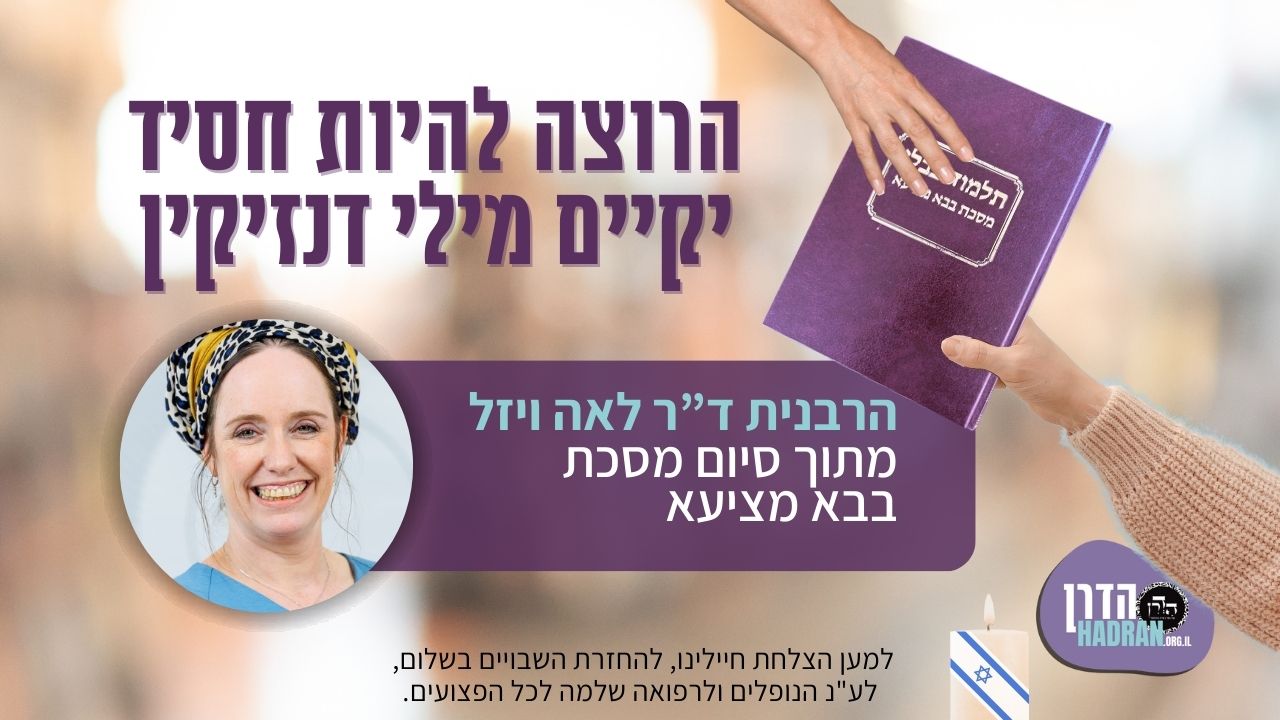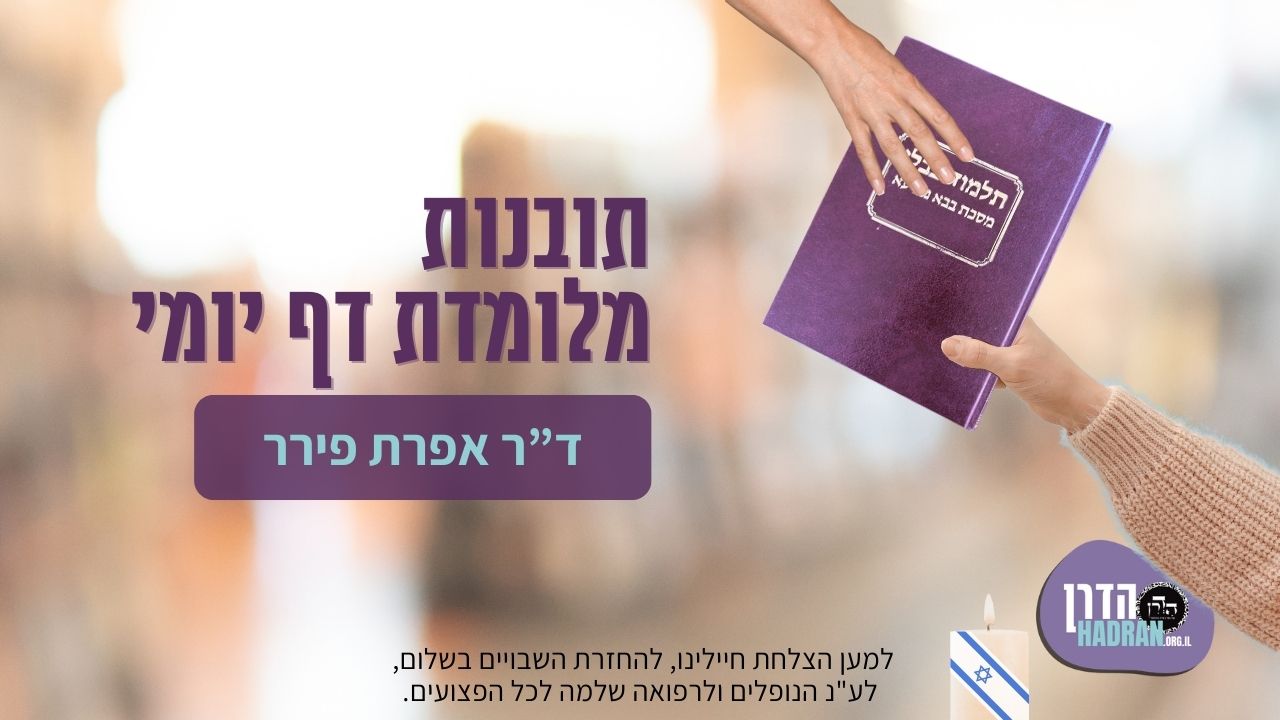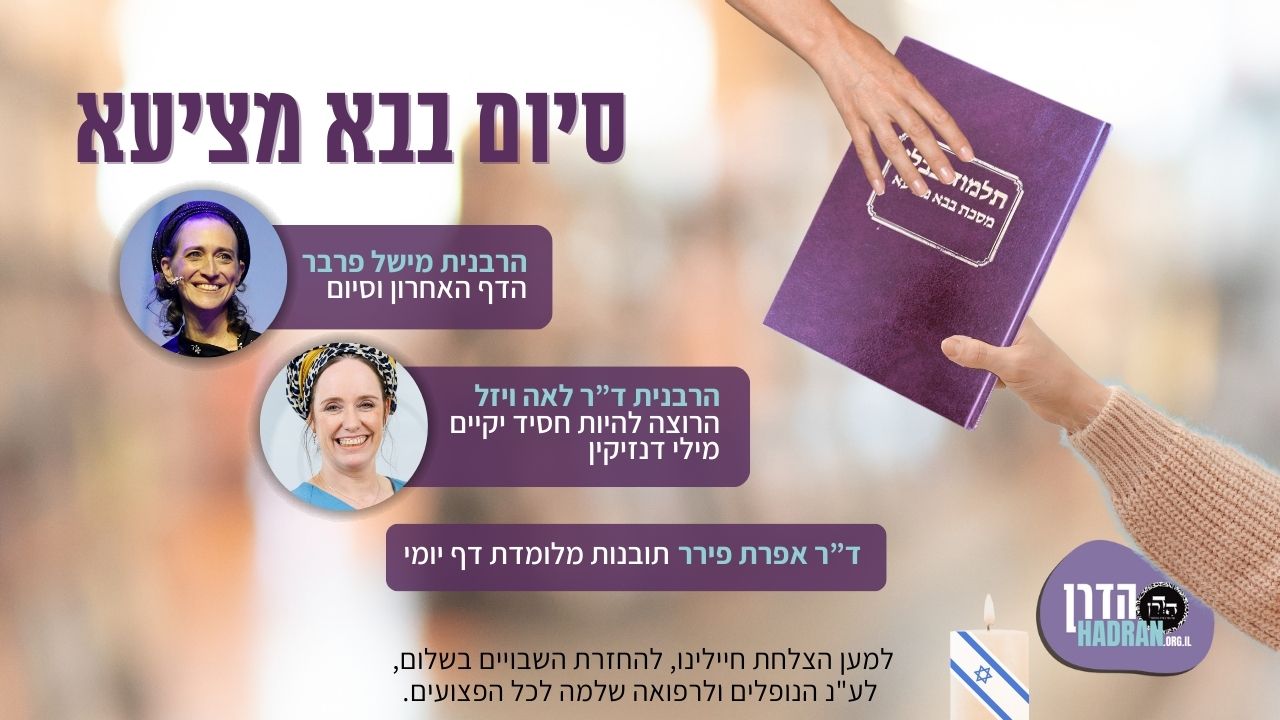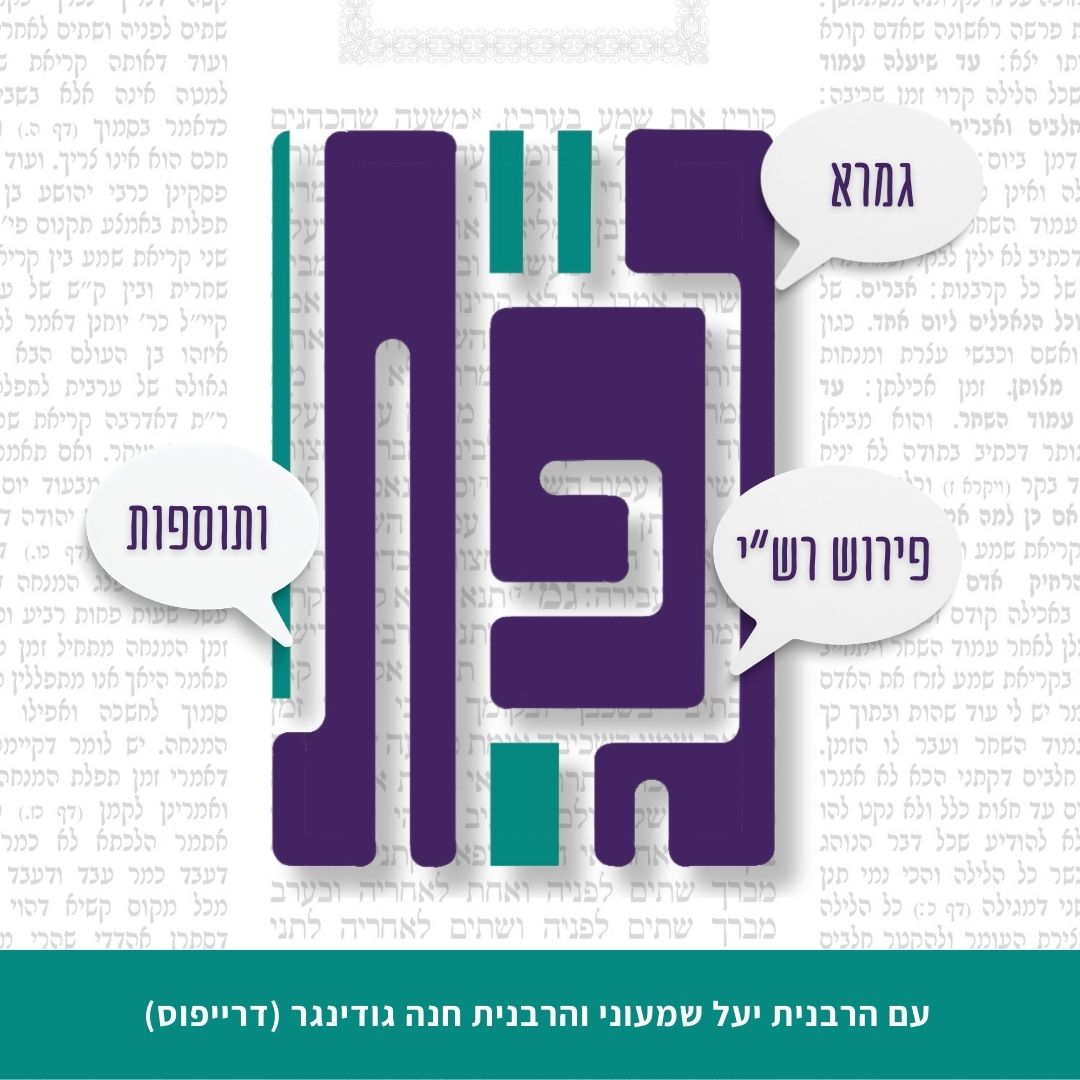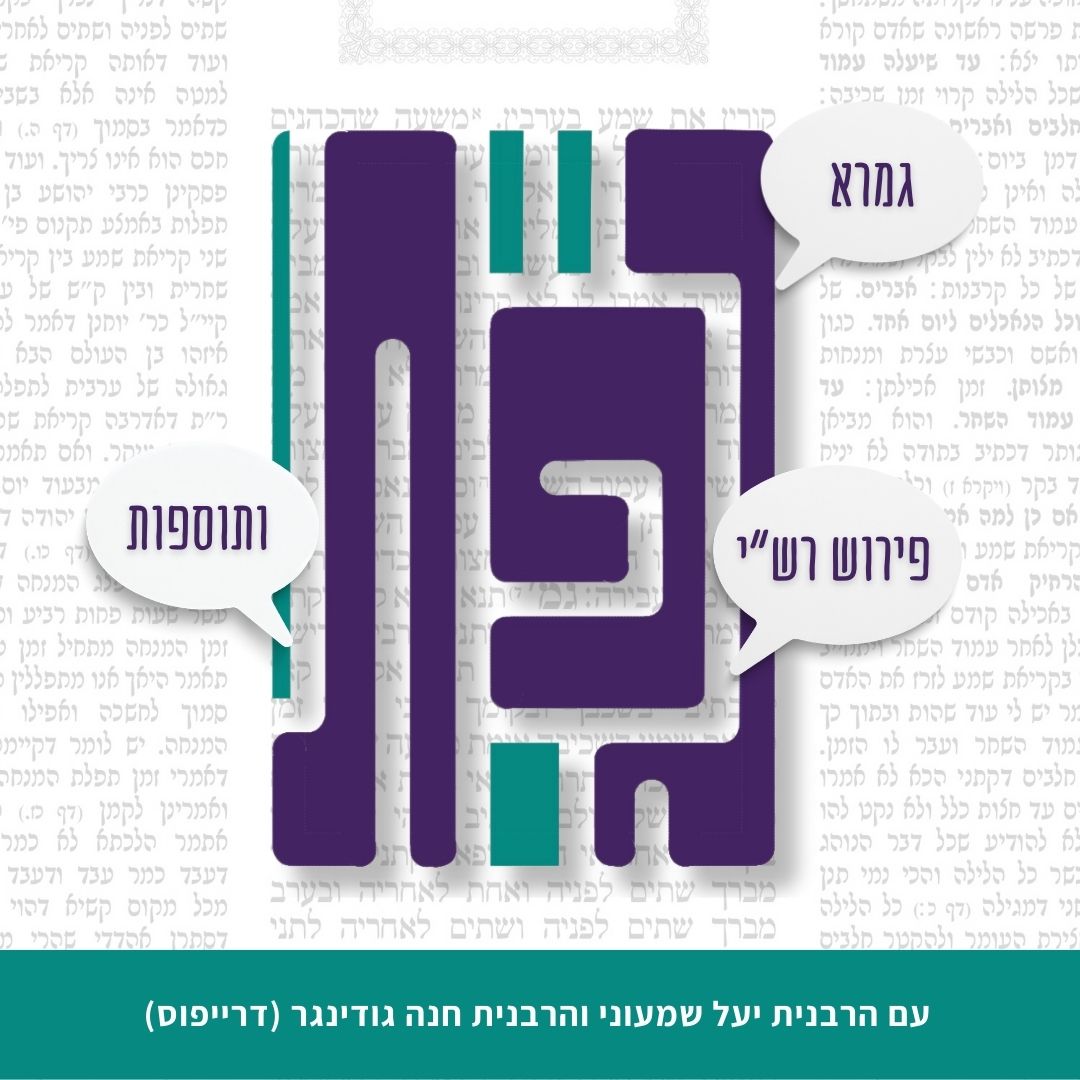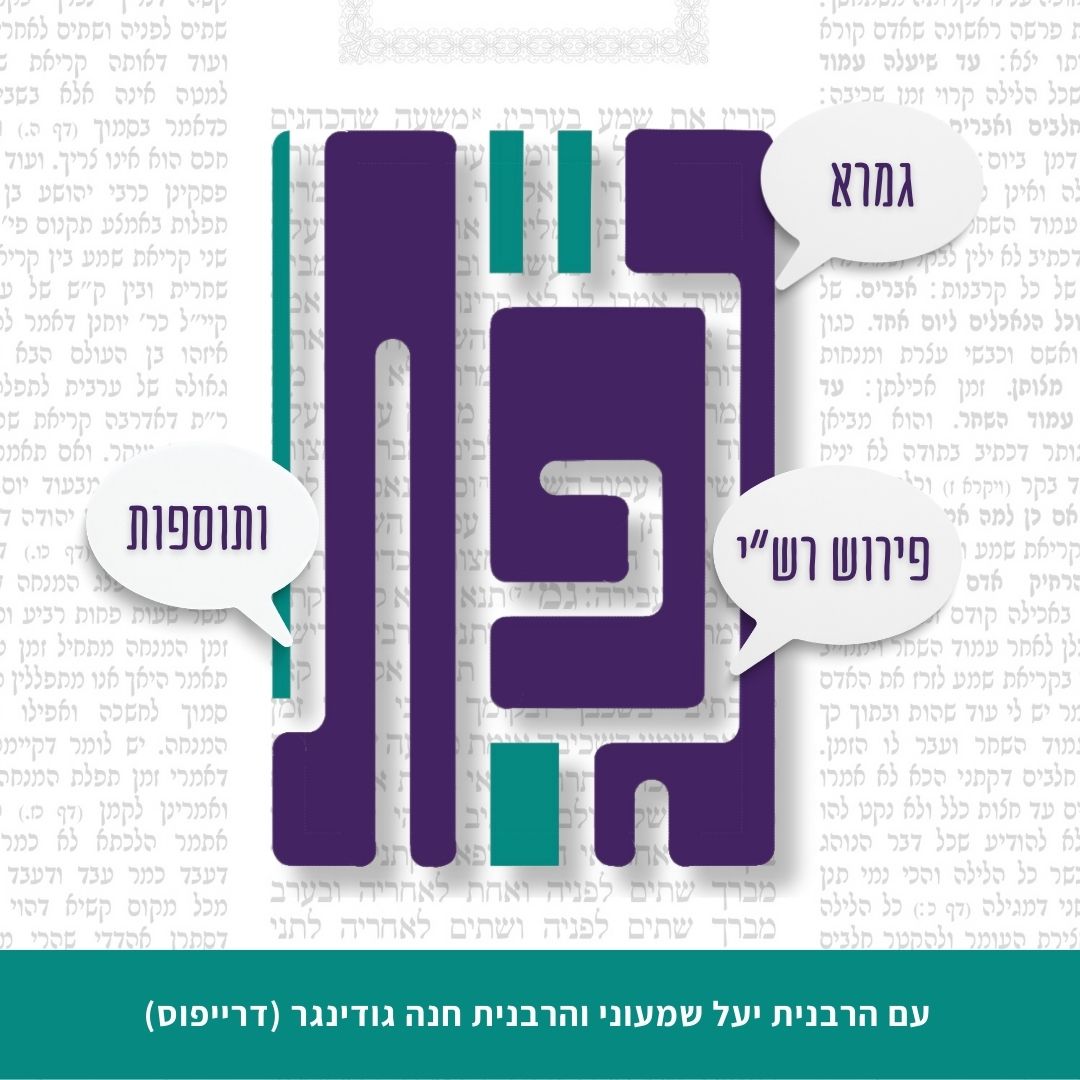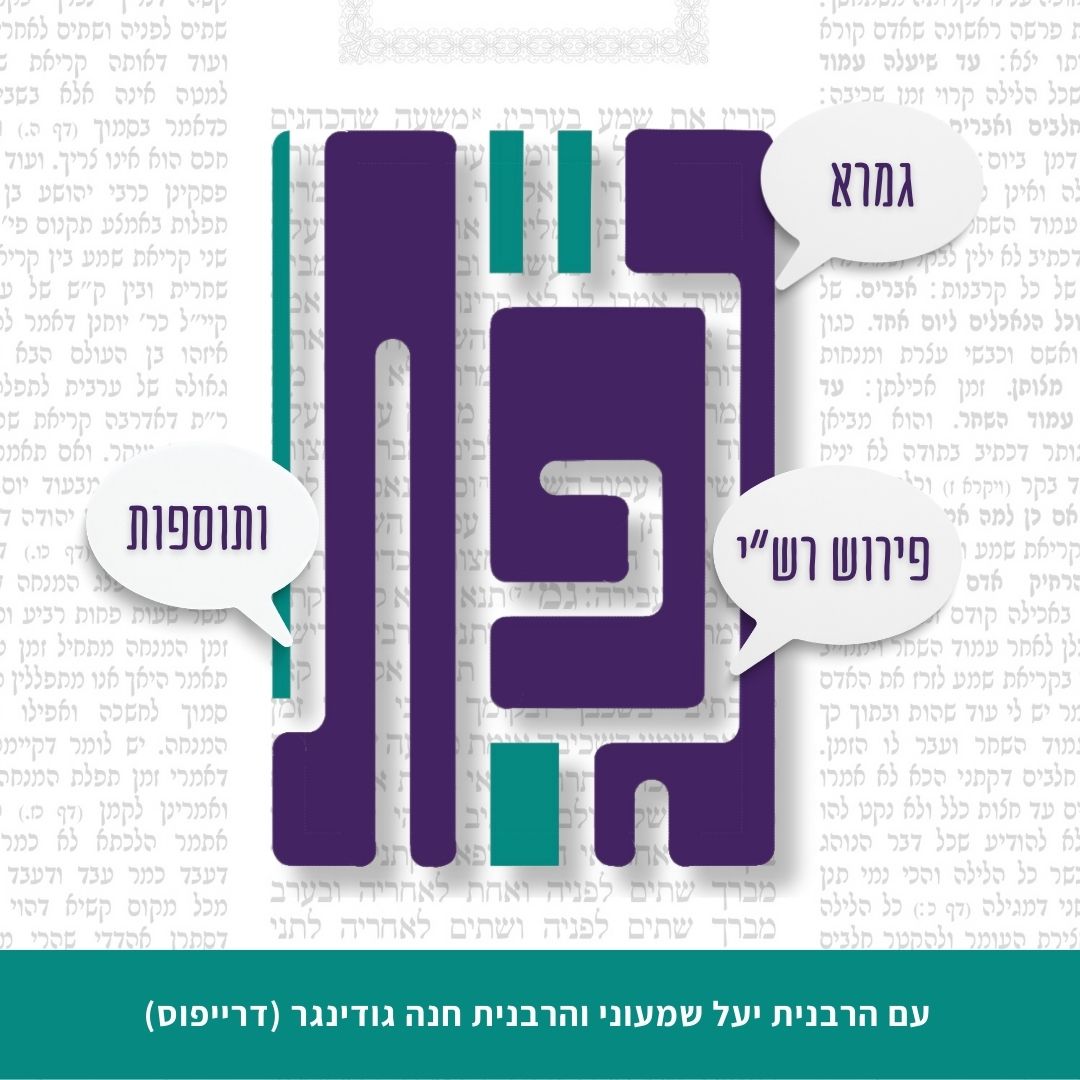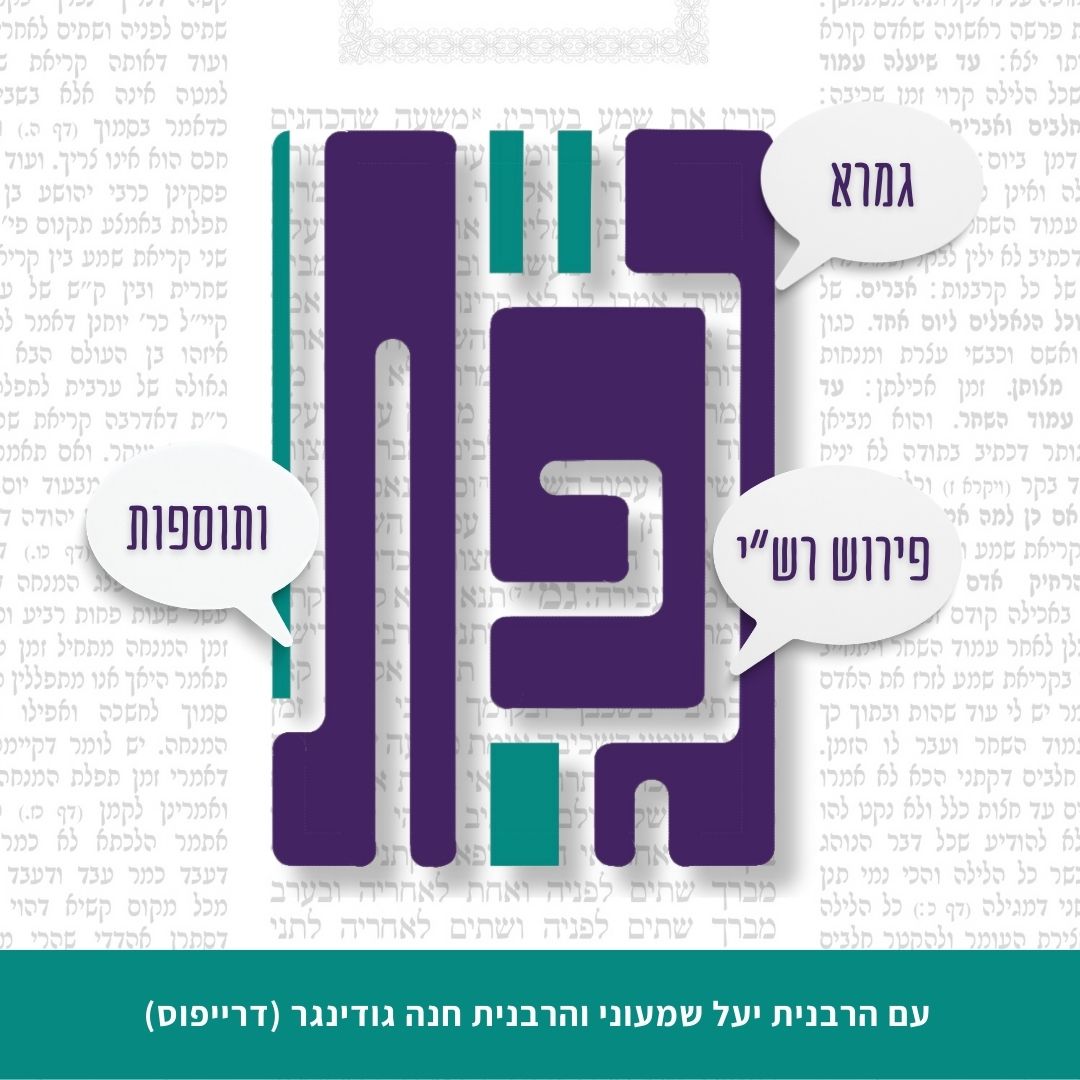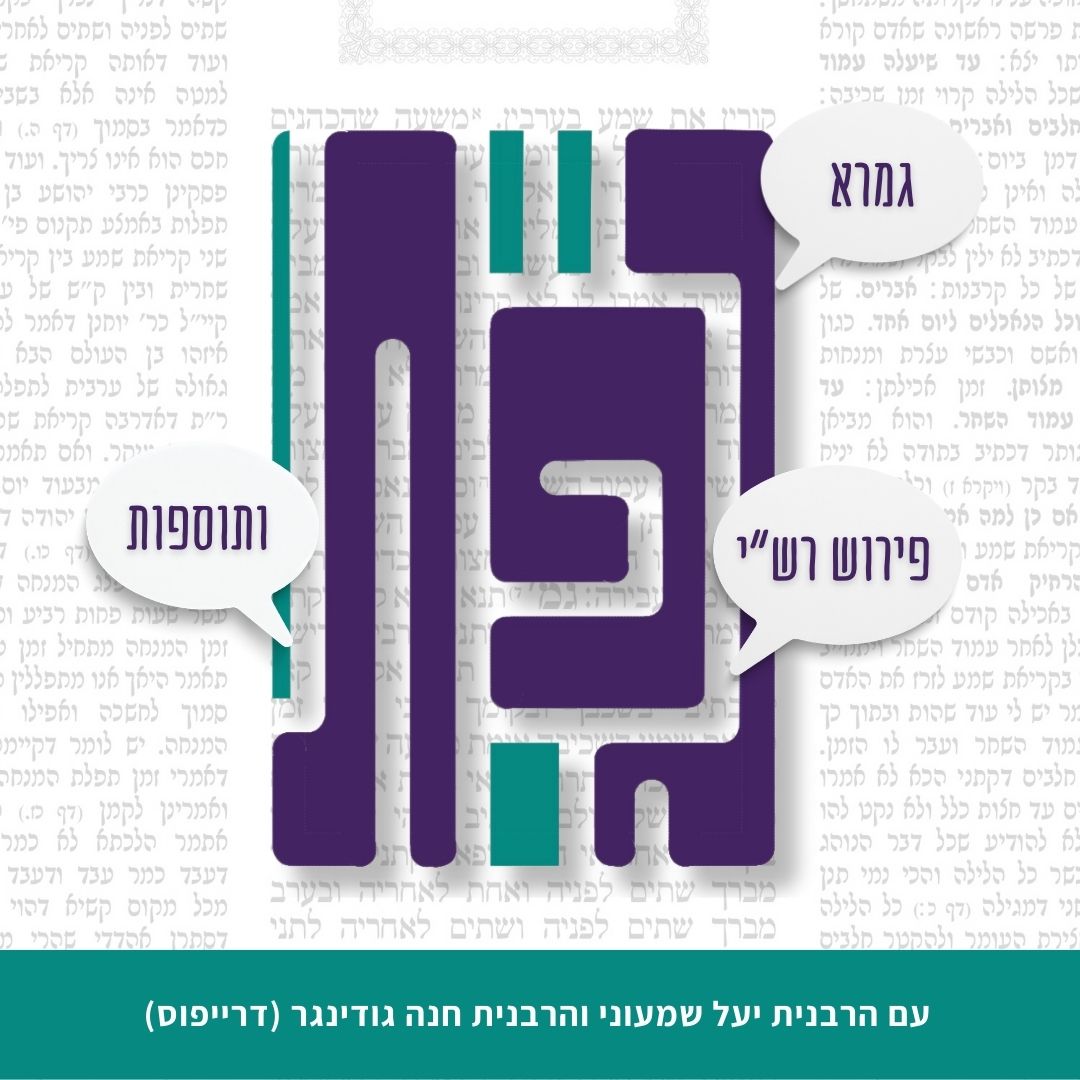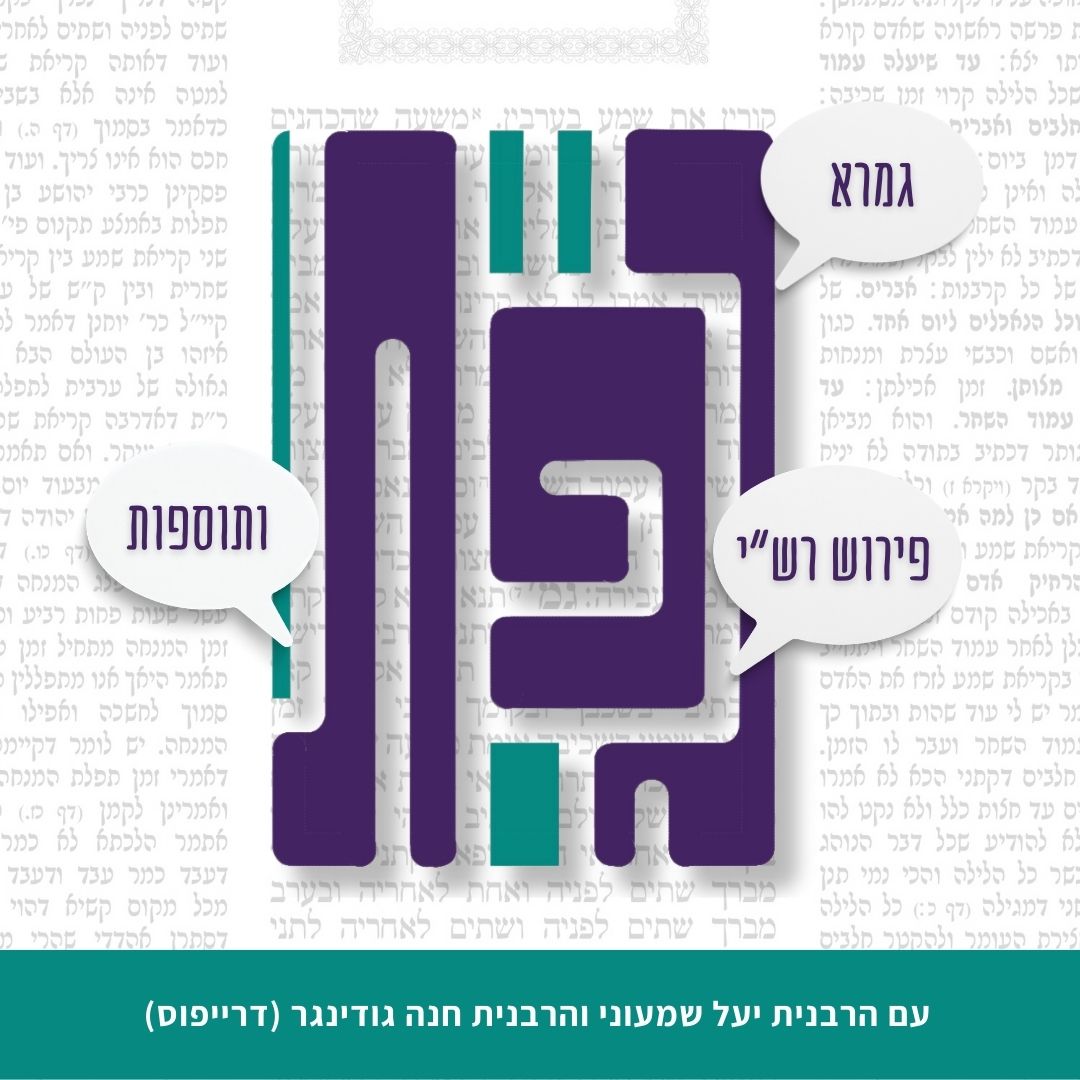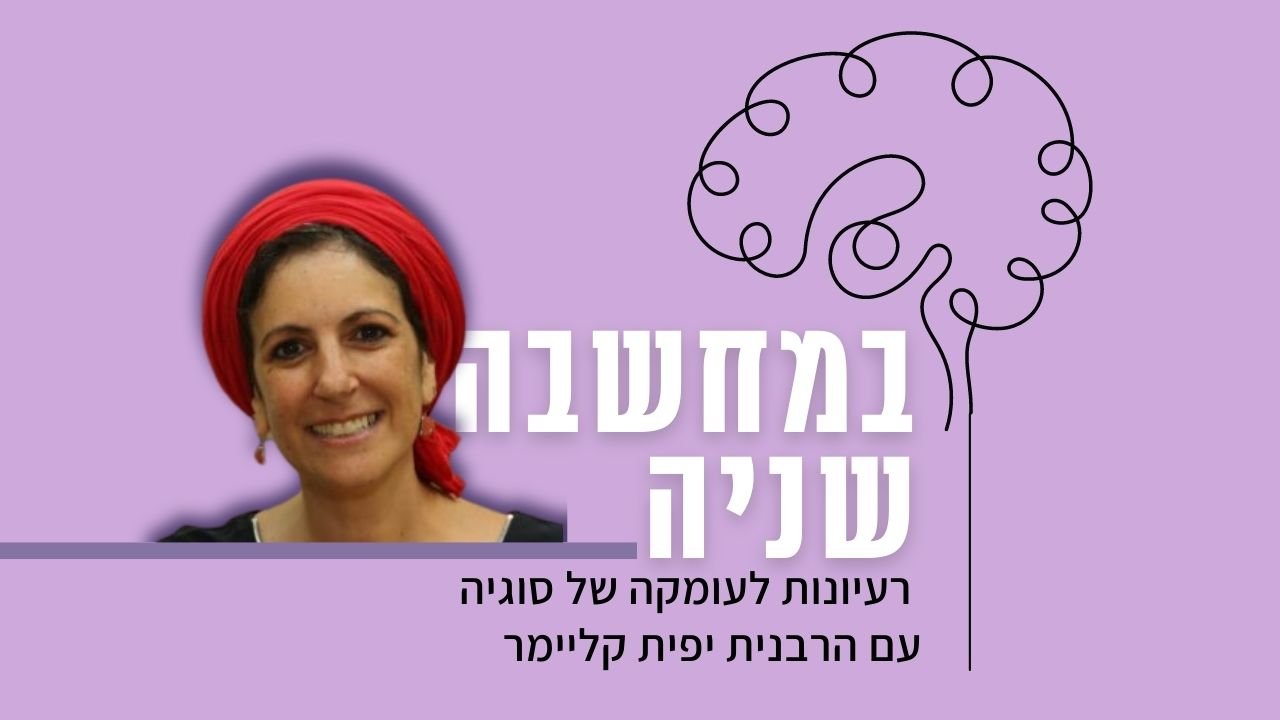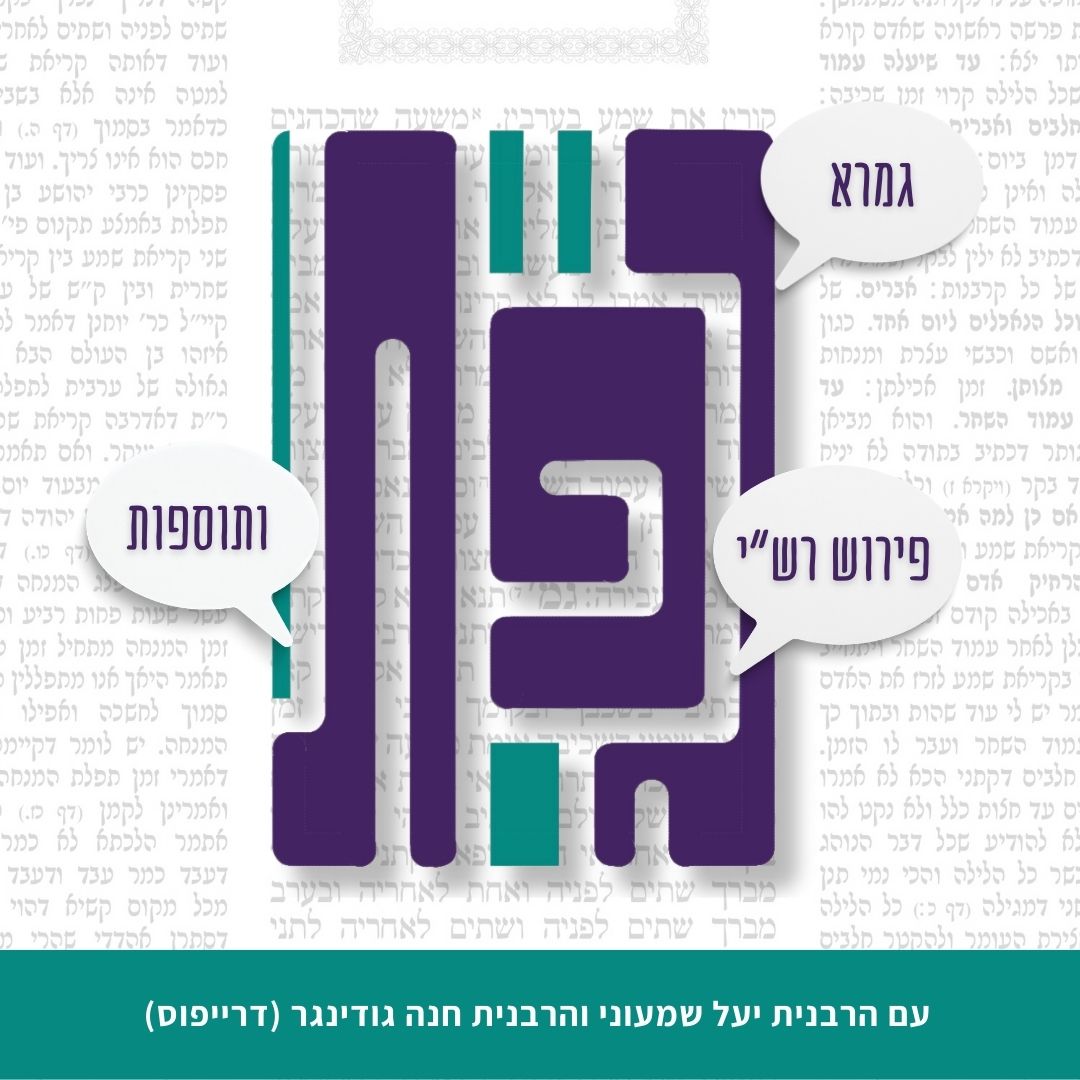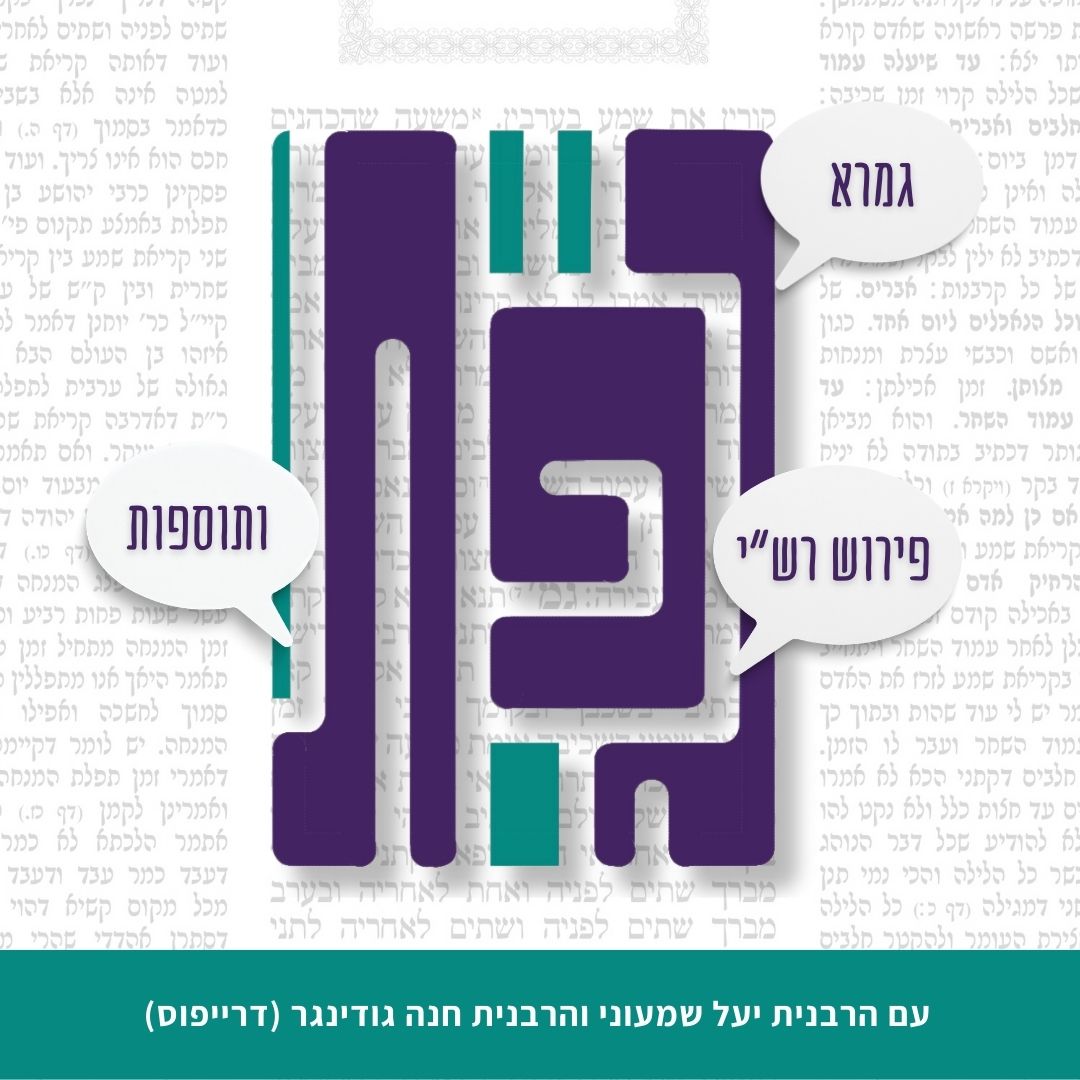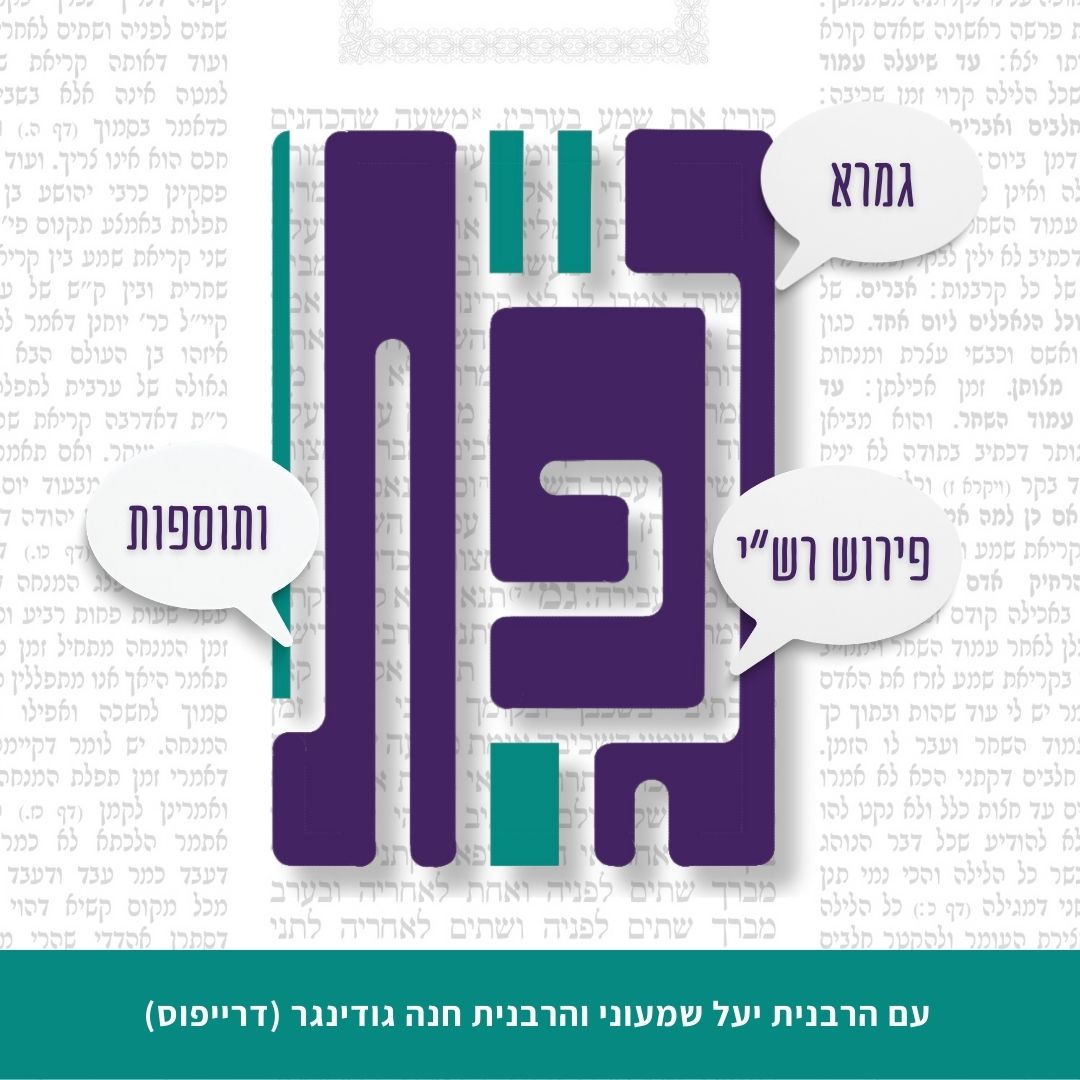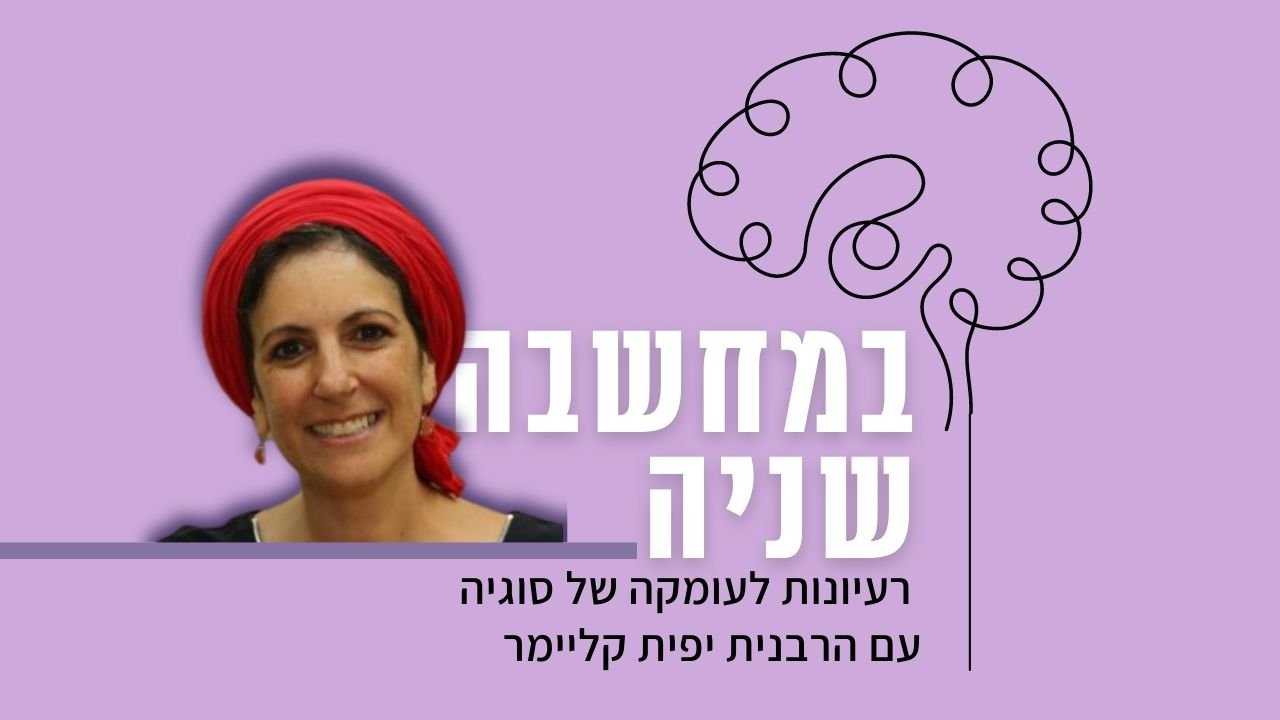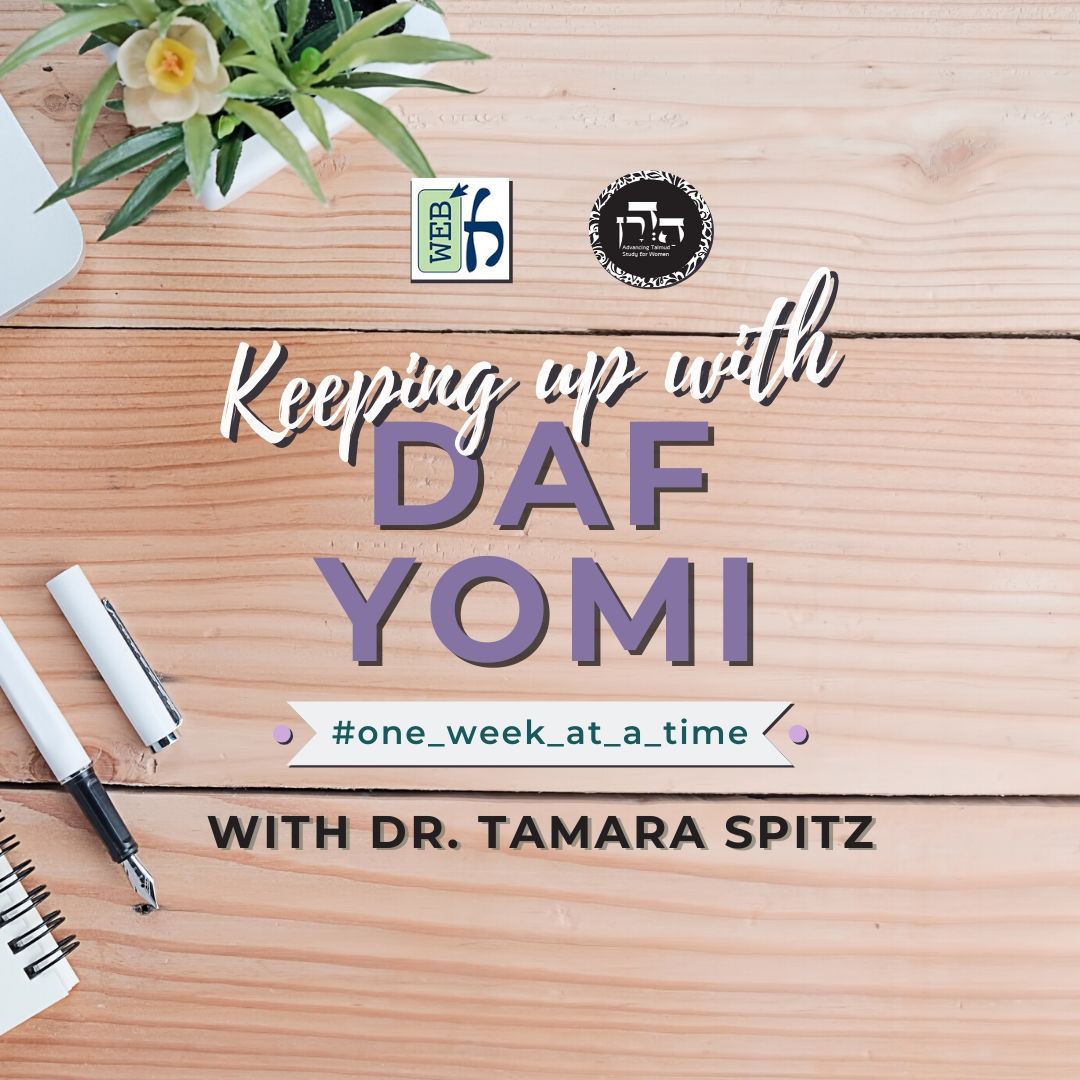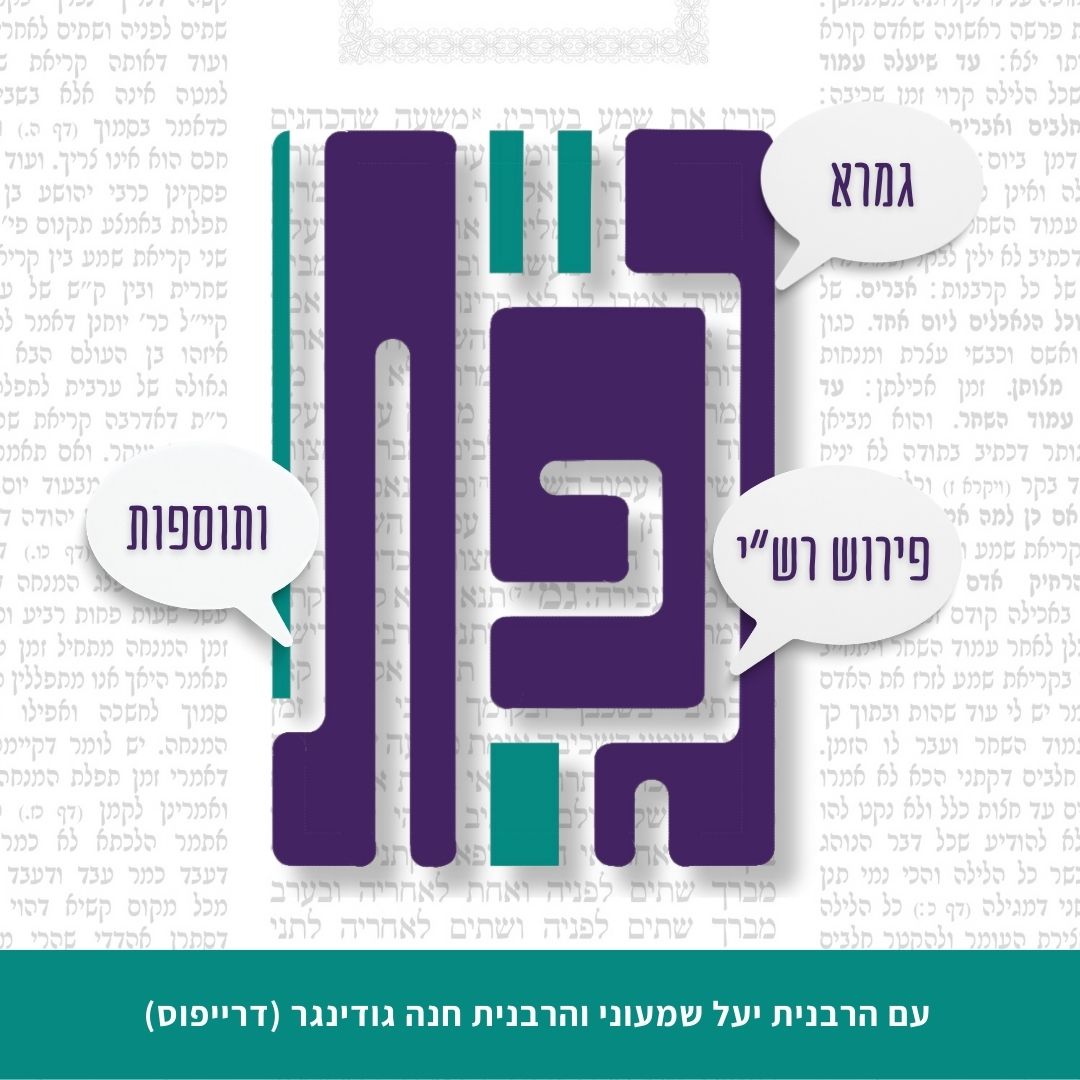בבא מציעא מז
וְיֵשׁ לוֹ עָלָיו אוֹנָאָה.
And if the sum of money is one-sixth lower than the value of the item, the seller of the item has a claim of exploitation against the buyer, who must pay the difference to the seller.
קָנָה – אַף עַל גַּב דְּלָא מָשַׁךְ, דְּכֵיוָן דְּלָא קָפֵיד – קָנָה, דְּכִי חֲלִיפִין דָּמֵי. וְיֵשׁ לוֹ עָלָיו אוֹנָאָה – דִּ״מְכוֹר לִי בְּאֵלּוּ״ קָאָמַר לֵיהּ. רַב אַבָּא אָמַר רַב הוּנָא: ״מְכוֹר לִי בְּאֵלּוּ״ – קָנָה, וְאֵין לוֹ עָלָיו אוֹנָאָה.
The Gemara elaborates: The buyer acquires the item even though he did not pull it, because since the seller is not particular about the sum, the buyer acquired the item, as it is similar to a transaction effected by means of exchange. And the seller has a claim of exploitation against the buyer because the buyer said to him: Sell me your item for these coins. The use of the language of sale indicates that it will be for an acceptable price. Rav Abba says that Rav Huna says that if the buyer said: Sell me your item for these coins, the buyer acquired the item; and the seller of the item has no claim of exploitation against the buyer, as it is a full-fledged transaction effected by means of exchange.
פְּשִׁיטָא: דָּמִים וְאֵין מַקְפִּיד עֲלֵיהֶן – הָא קָאָמְרִינַן דְּקָנֵי, דְּכַחֲלִיפִין דָּמוּ. חֲלִיפִין וּמַקְפִּיד עֲלֵיהֶן, מַאי?
The Gemara analyzes these halakhot: It is obvious that in a case where there is a sale of an item for money and the seller is not particular about the sum, we say that the buyer acquires the item immediately upon receiving the money, as it is similar to a transaction effected by means of exchange. But if it is a transaction effected by means of exchange and one of the parties is particular that the value of the items is equal, what is the halakha? Is its legal status that of a sale, or that of a transaction effected by means of exchange?
אָמַר רַב אַדָּא בַּר אַהֲבָה, תָּא שְׁמַע: הֲרֵי שֶׁהָיָה תּוֹפֵשׂ פָּרָתוֹ וְעוֹמֵד, וּבָא חֲבֵירוֹ וְאָמַר לוֹ: פָּרָתְךָ לָמָּה? לַחֲמוֹר אֲנִי צָרִיךְ. יֵשׁ לִי חֲמוֹר שֶׁאֲנִי נוֹתֵן לְךָ. פָּרָתְךָ בְּכַמָּה? בְּכָךְ וְכָךְ. חֲמוֹרְךָ בְּכַמָּה? בְּכָךְ וְכָךְ.
Rav Adda bar Ahava says: Come and hear a resolution to the dilemma from a baraita: There is a case where one was grasping his cow and standing in place, and another came and said to him: Why is your cow standing here? The owner of the cow replied: I need a donkey, and I hope to exchange this cow for one. The other person said: I have a donkey that I can give you; for how much are you selling your cow? The owner of the cow responded: I am selling it for such and such a price. He then said: For how much are you selling your donkey? The owner of the donkey responded: I am selling it for such and such a price.
מָשַׁךְ בַּעַל הַחֲמוֹר אֶת הַפָּרָה, וְלֹא הִסְפִּיק בַּעַל הַפָּרָה לִמְשׁוֹךְ אֶת הַחֲמוֹר עַד שֶׁמֵּת הַחֲמוֹר – לֹא קָנָה בַּעַל הַחֲמוֹר אֶת הַפָּרָה.
If, after this discussion, the owner of the donkey pulled the cow, but the owner of the cow did not manage to pull the donkey before the donkey died, the owner of the donkey did not acquire the cow, even though ostensibly this was a transaction effected by means of exchange, which is typically complete once one of the parties pulls the item he is acquiring.
שְׁמַע מִינַּהּ: חֲלִיפִין וּמַקְפִּיד עֲלֵיהֶן – לֹא קָנָה.
The Gemara suggests: Learn from it that in a case where there is a transaction effected by means of exchange and one of the parties is particular that the value of the items is equal, he does not acquire the item immediately. In contrast to the standard case of exchange, the owners of the cow and donkey assessed the value of the animals before the transaction. Since they are particular about the price, the acquisition is not completed until each pulls the item he is acquiring.
אָמַר רָבָא: אַטּוּ חֲלִיפִין בְּשׁוּפְטָנֵי עָסְקִינַן, דְּלָא קָפְדִי? אֶלָּא כׇּל חֲלִיפִין מִיקְפָּד קָפְדִי וְקָנָה. וְהָכָא בְּמַאי עָסְקִינַן – דַּאֲמַר לֵיהּ: חֲמוֹר בְּפָרָה וְטָלֶה, וּמָשַׁךְ אֶת הַפָּרָה וַעֲדַיִין לֹא מָשַׁךְ אֶת הַטָּלֶה, דְּלָא הָוֵה לֵיהּ מְשִׁיכָה מַעַלְיָא.
Rava said: Is that to say that in a standard case of exchange we are dealing with fools, who are not particular about the value of the items that they are acquiring? Rather, in every case of exchange, the parties are particular about the value of the items, and when one party pulls an item the other party acquires the other item immediately and pays for it later. And with what are we dealing here? The case in the baraita is where one party said to the other party: Let us exchange a donkey for a cow and a lamb, and the owner of the donkey pulled the cow and did not yet pull the lamb, as in that case he has not performed a proper act of pulling.
אָמַר מָר: ״מְכוֹר לִי בְּאֵלּוּ״ – קָנָה, וְיֵשׁ לוֹ עָלָיו אוֹנָאָה. לֵימָא סָבַר רַב הוּנָא מַטְבֵּעַ נַעֲשֶׂה חֲלִיפִין?
The Master, Rav Huna, said above that if one said to another: Sell me your item for these coins, the buyer acquired the article, and if the sum of money is one-sixth lower than the value of the item, the seller of the item has a claim of exploitation against the buyer. The Gemara suggests: Let us say based on that halakha that Rav Huna holds that a coin can be an item used to effect exchange.
לָא, רַב הוּנָא סָבַר לַהּ כְּרַבִּי יוֹחָנָן דְּאָמַר: דְּבַר תּוֹרָה מָעוֹת קוֹנוֹת. וּמִפְּנֵי מָה אָמְרוּ מְשִׁיכָה קוֹנָה – גְּזֵירָה שֶׁמָּא יֹאמַר לוֹ נִשְׂרְפוּ חִטֶּיךָ בַּעֲלִיָּיה. מִלְּתָא דִּשְׁכִיחָא – גְּזַרוּ בַּהּ רַבָּנַן, וּמִלְּתָא דְּלָא שְׁכִיחָא – לָא גְּזַרוּ בַּהּ רַבָּנַן. אֲמַר לֵיהּ מָר הוּנָא בְּרֵיהּ דְּרַב נַחְמָן לְרַב אָשֵׁי: אַתּוּן, הָכִי מַתְנִיתוּ לַהּ, אֲנַן הָכִי מַתְנֵינַן לַהּ: וְכֵן אָמַר רַב הוּנָא, אֵין מַטְבֵּעַ נַעֲשֶׂה חֲלִיפִין.
The Gemara rejects this suggestion: No, Rav Huna holds in accordance with the opinion of Rabbi Yoḥanan, who says: By Torah law money effects acquisition. And for what reason did the Sages say that pulling acquires an item and money does not? This is a rabbinic decree lest the seller say to the buyer after receiving the money: Your wheat was burned in the upper story. And it is only with regard to a common matter that the Sages issued a decree, but with regard to an uncommon matter the Sages did not issue a decree. Therefore, in this case there is no decree, and the transaction is governed by Torah law. Mar Huna, son of Rav Naḥman, said to Rav Ashi: You teach this halakha in that manner; we teach it in this manner, not by inference but as an explicit ruling: And likewise, Rav Huna said: Money cannot be the item used to effect a transaction by means of exchange.
בַּמֶּה קוֹנִין?
§ Above, the Gemara mentioned a form of exchange in which there are not two items of equal value being exchanged, but rather one person attempts to transfer possession of his item to the buyer by means of a symbolic exchange involving, e.g., a cloth. With regard to that symbolic transaction, the Gemara asks: With what vessel does one acquire the item in question, i.e., whose vessel is used in order to effect this symbolic transaction?
רַב אָמַר: בְּכִלְיוֹ שֶׁל קוֹנֶה. דְּנִיחָא לֵיהּ לְקוֹנֶה דְּלֶהֱוֵי מַקְנֶה קוֹנֶה, כִּי הֵיכִי דְּלִגְמַר וְלַקְנֵי לֵיהּ. וְלֵוִי אָמַר: בְּכִלְיוֹ שֶׁל מַקְנֶה, כִּדְבָעֵינַן לְמֵימַר לְקַמַּן.
Rav says: One effects the transaction with the vessels of the one acquiring the item, who effects the transaction by giving the vessels to the owner of the item. The moment that the owner pulls the vessel into his possession, the transaction is complete and ownership of the item in question is transferred to his counterpart. Rav explains that the one acquiring the item is amenable to having the one transferring ownership of the item acquire his vessel, so that he will resolve to transfer ownership to him. And Levi says: One effects the transaction by having the one acquiring the item pull the vessels of the one transferring ownership, as we seek to explain below.
אֲמַר לֵיהּ רַב הוּנָא מִדִּסְקַרְתָּא לְרָבָא: וּלְלֵוִי, דְּאָמַר בְּכִלְיוֹ שֶׁל מַקְנֶה, הָא קָא קָנֵי אַרְעָא אַגַּב גְּלִימָא. אִם כֵּן, הָווּ לֵיהּ נְכָסִים שֶׁיֵּשׁ לָהֶן אַחְרָיוּת וְנִקְנִין עִם נְכָסִים שֶׁאֵין לָהֶן אַחְרָיוּת. וַאֲנַן אִיפְּכָא תְּנַן: נְכָסִים שֶׁאֵין לָהֶן אַחְרָיוּת נִקְנִין עִם נְכָסִים שֶׁיֵּשׁ לָהֶן אַחְרָיוּת!
Rav Huna from Diskarta said to Rava: But according to Levi, who says that one effects the transaction with the vessels of the one transferring ownership, there is a difficulty. In a case where one acquires land by means of symbolic exchange where the item used is a cloak, it turns out that he is acquiring land by means of a cloak. If so, this is a case of property that is guaranteed, i.e., land, and it is acquired with movable property that is not guaranteed, by means of a transaction performed on the latter. And we learned the opposite in a mishna (Kiddushin 26a): Property that is not guaranteed is acquired with property that is guaranteed, i.e., land, by means of a transaction performed on the latter.
אֲמַר לֵיהּ: אִי הֲוָה לֵוִי הָכָא, הֲוָה מַפֵּיק לְאַפָּךְ פּוּלְסֵי דְנוּרָא! מִי סָבְרַתְּ גְּלִימָא מַקְנֵה לֵיהּ? בְּהָהִיא הֲנָאָה דְּקָא מְקַבֵּל מִינֵּיהּ – גָּמַר וּמַקְנֵי לֵיהּ.
Rava said to him: If Levi, whose opinion you questioned, were here, he would take out rods of fire before you and flog you for your unwarranted question. Do you maintain that he said that at the moment he transfers ownership of the cloak he transfers ownership of the land to him? That is not the case; rather, in exchange for that pleasure the owner of the item experiences from the fact that the one acquiring the cloak accepted it from him, he resolves to transfer ownership to him. This is unlike the acquisition of movable items by means of a transaction of land, where both are acquired simultaneously. Here, the transfer of ownership of the cloak effects the subsequent transfer of ownership of the land.
כְּתַנָּאֵי: ״וְזֹאת לְפָנִים בְּיִשְׂרָאֵל עַל הַגְּאוּלָּה וְעַל הַתְּמוּרָה לְקַיֵּם כׇּל דָּבָר שָׁלַף אִישׁ נַעֲלוֹ וְנָתַן לְרֵעֵהוּ״. ״גְּאוּלָּה״ – זוֹ מְכִירָה, וְכֵן הוּא אוֹמֵר: ״לֹא יִגָּאֵל״. ״תְּמוּרָה״ – זוֹ חֲלִיפִין, וְכֵן הוּא אוֹמֵר: ״לֹא יַחֲלִיפֶנּוּ וְלֹא יָמִיר אוֹתוֹ״.
The Gemara comments: This dispute between Rav and Levi is parallel to a dispute between tanna’im. The verse states: “Now this was the custom in former time in Israel concerning redemption and concerning substitution, to confirm all matters; a man drew off his shoe, and gave it to his neighbor” (Ruth 4:7). The verse is interpreted: “Redemption”; that is a sale. And likewise it says: “Neither shall be sold nor shall be redeemed” (Leviticus 27:28). “Substitution”; that is the transaction of exchange. And likewise it says: “He may neither exchange it nor substitute it” (Leviticus 27:10).
״לְקַיֵּם כׇּל דָּבָר שָׁלַף אִישׁ נַעֲלוֹ וְנָתַן לְרֵעֵהוּ״. מִי נָתַן לְמִי? בּוֹעַז נָתַן לַגּוֹאֵל. רַבִּי יְהוּדָה אוֹמֵר: גּוֹאֵל נָתַן לְבוֹעַז.
With regard to the phrase “To confirm all matters; a man drew off his shoe, and gave it to his neighbor,” the baraita asks: Who gave the shoe to whom? Boaz gave his shoe to the redeemer, the closest relative of Elimelech, who had the right of first refusal to the land that Naomi, Elimelech’s widow, was planning to sell. The redeemer was transferring that right to the land to Boaz, who was acquiring it by means of his shoe. Rabbi Yehuda says: The redeemer gave his shoe to Boaz. The dispute between Rav and Levi is parallel to the dispute between the first tanna and Rabbi Yehuda.
תָּנָא: קוֹנִין בִּכְלִי אַף עַל פִּי שֶׁאֵין בּוֹ שָׁוֶה פְּרוּטָה. אָמַר רַב נַחְמָן: לֹא שָׁנוּ אֶלָּא בִּכְלִי, אֲבָל בְּפֵירֵי – לָא. רַב שֵׁשֶׁת אָמַר: אֲפִילּוּ בְּפֵירוֹת. מַאי טַעְמָא דְּרַב נַחְמָן? אָמַר קְרָא ״נַעֲלוֹ״, נַעַל – אִין, מִידֵּי אַחֲרִינָא – לָא.
§ It was taught: One can acquire property through a symbolic exchange by using a vessel, even if it does not have the value of one peruta. Rav Naḥman says: The Sages taught that this symbolic exchange can be effected only by using a vessel, but not by using produce, i.e., any item other than a vessel. Rav Sheshet says: It can be effected even by using produce. The Gemara explains: What is the reason for the opinion of Rav Naḥman? The verse states: “His shoe” (Ruth 4:7), from which it is derived: With regard to a shoe and any other item similar to a shoe, i.e., a vessel, yes, the symbolic exchange can be effected; with regard to any item other than a vessel, no, it cannot be effected.
מַאי טַעְמֵיהּ דְּרַב שֵׁשֶׁת, אָמַר קְרָא: ״לְקַיֵּם כׇּל דָּבָר״. לְרַב נַחְמָן נָמֵי, הָכְתִיב: ״לְקַיֵּם כׇּל דָּבָר״! הַהוּא לְקַיֵּם כׇּל דָּבָר, דְּנִיקְנִין בְּמִנְעָל. וְרַב שֵׁשֶׁת נָמֵי, הָכְתִיב: ״נַעֲלוֹ״! אָמַר לְךָ רַב שֵׁשֶׁת: מָה נַעֲלוֹ דָּבָר הַמְסוּיָּים – אַף כׇּל דָּבָר הַמְסוּיָּים, לְאַפּוֹקֵי חֲצִי רִמּוֹן וַחֲצִי אֱגוֹז, דְּלָא.
What is the reason for the opinion of Rav Sheshet? The verse in Ruth states: “To confirm all matters,” from which it is derived that all items, even if they are not vessels, can effect the exchange. The Gemara asks: According to Rav Naḥman as well, isn’t it written: “To confirm all matters”? The Gemara explains: In his opinion, that phrase: “To confirm all matters,” is referring to all items that can be acquired through an exchange effected by using a shoe. The Gemara asks: And according to Rav Sheshet as well, isn’t it written: “His shoe”? The Gemara explains: Rav Sheshet could have said to you that from that term it is derived: Just as his shoe is a complete item, so too, every complete item can effect a symbolic exchange, to exclude half a pomegranate and half a nut, which cannot effect a symbolic exchange. A whole pomegranate or nut can be used for that purpose.
אָמַר רַב שֵׁשֶׁת בְּרֵיהּ דְּרַב אִידִי: כְּמַאן כָּתְבִינַן הָאִידָּנָא ״בְּמָנָא דְּכָשַׁר לְמִקְנְיָא בֵּיהּ״. ״בְּמָנָא״ – לְאַפּוֹקֵי מִדְּרַב שֵׁשֶׁת, דְּאָמַר קוֹנִין בְּפֵירוֹת. ״דְּכָשַׁר״ – לְאַפּוֹקֵי מִדִּשְׁמוּאֵל, דְּאָמַר קוֹנִין
Rav Sheshet, son of Rav Idi, said: In accordance with whose opinion do we write today in documents that the transaction was effected with a vessel that is fit to acquire items with it? The Gemara explains: The term with a vessel serves to exclude the opinion of Rav Sheshet, who says: One acquires an item through a transaction of symbolic exchange by using produce. The term that is fit serves to exclude the opinion of Shmuel, who says: One acquires an item
בְּמָרוֹקָא. ״לְמִקְנְיָא״ – לְאַפּוֹקֵי מִדְּלֵוִי, דְּאָמַר בְּכִלְיוֹ שֶׁל מַקְנֶה, קָא מַשְׁמַע לַן ״לְמִקְנְיָא״ וְלָא ״לְ[אַ]קְנוֹיֵי״. ״בֵּיהּ״ – רַב פָּפָּא אָמַר: לְמַעוֹטֵי מַטְבֵּעַ. וְרַב זְבִיד, וְאִיתֵּימָא רַב אָשֵׁי אָמַר: לְמַעוֹטֵי אִיסּוּרֵי הֲנָאָה.
with date pits used for cleaning and smoothing parchment. The term to acquire items serves to exclude the opinion of Levi, who says that the symbolic exchange is effected by means of the vessels of the one transferring ownership of the item. This latter expression teaches us that the vessel is given to acquire and not to transfer ownership to the other. With regard to the term: With it, Rav Pappa said: It serves to exclude a coin, which cannot effect a symbolic exchange. And Rav Zevid, and some say Rav Ashi, said: It serves to exclude items from which deriving benefit is prohibited.
אִיכָּא דְּאָמְרִי: ״בֵּיהּ״ – אָמַר רַב פָּפָּא: לְמַעוֹטֵי מַטְבֵּעַ. ״דְּכָשַׁר״ – אָמַר רַב זְבִיד, וְאִיתֵּימָא רַב אָשֵׁי: לְמַעוֹטֵי אִיסּוּרֵי הֲנָאָה. אֲבָל מוֹרִיקָא לָא אִצְטְרִיךְ.
Some say a different version of the dispute, as follows. With regard to the term: With it, Rav Pappa said: It serves to exclude a coin, which cannot effect a symbolic exchange. With regard to the term: That is fit, Rav Zevid, and some say Rav Ashi, said: It serves to exclude items from which deriving benefit is prohibited. But according to this version, a verse to exclude date pits is not necessary, as they are of no significance at all.
אֲסִימוֹן קוֹנֶה אֶת הַמַּטְבֵּעַ וְכוּ׳. מַאי ״אֲסִימוֹן״? אָמַר רַב: מָעוֹת הַנִּיתָּנוֹת בְּסִימָן לְבֵית הַמֶּרְחָץ.
§ The Gemara returns to an analysis of a passage in the mishna. When one party takes possession of an asimon, the other party acquires the minted coin. The Gemara asks: What is an asimon? Rav said: It is one of the coins given as a token to gain entry into the bathhouse, for which the bathers would pay later.
מֵיתִיבִי: אֵין מְחַלְּלִין מַעֲשֵׂר שֵׁנִי עַל אֲסִימוֹן וְלֹא עַל מָעוֹת הַנִּיתָּנוֹת בְּסִימָן לְבֵית הַמֶּרְחָץ. מִכְּלַל דַּאֲסִימוֹן לָאו מָעוֹת הַנִּיתָּנוֹת בְּסִימָן לְבֵית הַמֶּרְחָץ! וְכִי תֵּימָא פָּרוֹשֵׁי קָמְפָרֵשׁ – וְהָא לָא תַּנָּא הָכִי: מְחַלְּלִין מַעֲשֵׂר שֵׁנִי עַל אֲסִימוֹן, דִּבְרֵי רַבִּי דּוֹסָא. וַחֲכָמִים אוֹמְרִים: אֵין מְחַלְּלִין. וְשָׁוִין שֶׁאֵין מְחַלְּלִין עַל מָעוֹת הַנִּיתָּנוֹת בְּסִימָן לְבֵית הַמֶּרְחָץ!
The Gemara raises an objection from a baraita: One desacralizes second-tithe produce neither with an asimon nor with one of the coins given as a token to gain entry into the bathhouse. This proves by inference that an asimon is not one of the coins given as tokens in a bathhouse. And if you would say the tanna is explaining the meaning of the term asimon, there is a difficulty with that explanation. But wasn’t it taught in another baraita like this: One desacralizes second-tithe produce with an asimon; this is the statement of Rabbi Dosa. And the Rabbis say: One does not desacralize second-tithe produce with an asimon. And they agree that one does not desacralize the second-tithe produce by transferring its sanctity onto one of the coins given as a token to gain entry into the bathhouse. It is clear from this baraita that an asimon is not a token given in a bathhouse.
אֶלָּא אָמַר רַבִּי יוֹחָנָן: מַאי אֲסִימוֹן – פּוּלְסָא. וְאַזְדָּא רַבִּי יוֹחָנָן לְטַעְמֵיהּ, דְּאָמַר רַבִּי יוֹחָנָן: רַבִּי דּוֹסָא וְרַבִּי יִשְׁמָעֵאל אָמְרוּ דָּבָר אֶחָד, רַבִּי דּוֹסָא – הָא דַּאֲמַרַן. רַבִּי יִשְׁמָעֵאל מַאי הִיא, דְּתַנְיָא: ״וְצַרְתָּ הַכֶּסֶף בְּיָדְךָ״ – לְרַבּוֹת כׇּל דָּבָר הַנִּצְרָר בַּיָּד, דִּבְרֵי רַבִּי יִשְׁמָעֵאל. רַבִּי עֲקִיבָא אוֹמֵר: לְרַבּוֹת כׇּל דָּבָר שֶׁיֵּשׁ עָלָיו צוּרָה.
Rather, Rabbi Yoḥanan said: What is an asimon? It is a blank, i.e., a piece of metal in the shape of a coin that was not yet imprinted. The Gemara comments: And Rabbi Yoḥanan follows his standard line of reasoning, as Rabbi Yoḥanan said: Rabbi Dosa and Rabbi Yishmael said the same thing. Rabbi Dosa, as we stated, said that the legal status of an asimon is that of a coin. With regard to Rabbi Yishmael, what is his statement? It is as it is taught in a baraita: “And you shall bind up [vetzarta] the money in your hand” (Deuteronomy 14:25). This serves to include any type of money that is bound [hanitzrar] in one’s hand, i.e., that has monetary value; this is the statement of Rabbi Yishmael. Rabbi Akiva says: It serves to include any type of money that has an imprint [tzura]. Rabbi Akiva requires a minted coin in order to desacralize a second-tithe produce coin, while Rabbi Yishmael says that a blank can be used as well.
כֵּיצַד: מָשַׁךְ הֵימֶנּוּ פֵּירוֹת וְלֹא נָתַן לוֹ מָעוֹת – אֵינוֹ יָכוֹל לַחֲזוֹר בּוֹ וְכוּ׳. אָמַר רַבִּי יוֹחָנָן: דְּבַר תּוֹרָה מָעוֹת קוֹנוֹת, וּמִפְּנֵי מָה אָמְרוּ מְשִׁיכָה קוֹנָה – גְּזֵירָה שֶׁמָּא יֹאמַר לוֹ ״נִשְׂרְפוּ חִטֶּיךָ בָּעֲלִיָּיה״.
§ The mishna teaches: How so? If the buyer pulled produce from the seller, but the buyer did not yet give the seller their value in coins, he cannot renege on the transaction, but if the buyer gave the seller coins, but did not yet pull produce from him, he can renege on the transaction, as the transaction is not yet complete. By Torah law money effects acquisition, i.e., when one pays money he acquires the item, even if he has not yet performed another act of acquisition. And for what reason did the Sages say that pulling acquires an item and money does not? This is a rabbinic decree lest the seller say to the buyer after receiving the money: Your wheat was burned in the upper story. If a fire breaks out or some other mishap occurs after a seller receives the money, he will not bother to save the goods in his house because they no longer belong to him, and the buyer may incur a loss.
סוֹף סוֹף, מַאן דִּשְׁדָא דְּלֵיקָה בָּעֵי שַׁלּוֹמֵי! אֶלָּא: גְּזֵירָה שֶׁמָּא תִּפּוֹל דְּלֵיקָה בְּאוֹנֶס. אִי מוֹקְמַתְּ לְהוּ בִּרְשׁוּתֵיהּ – מָסַר נַפְשֵׁיהּ, טָרַח וּמַצֵּיל. וְאִי לָא – לָא מָסַר נַפְשֵׁיהּ, טָרַח וּמַצֵּיל.
The Gemara asks: Ultimately, the one who ignited the fire is required to pay for the damage caused, and the one who purchased the movable items with money will be reimbursed for his loss, so why was there a need to issue this decree? Rather, it is a rabbinic decree lest a fire be ignited spontaneously due to circumstances beyond one’s control, where no one is liable to pay for the damage caused. If you establish the purchase item in the possession of the seller, he will expend great effort, exert himself, and rescue the item, as it is still his own property. But if you do not establish the purchase item in the possession of the seller, he will not expend great effort, exert himself, and rescue the item. That is the opinion of Rabbi Yoḥanan.
רֵישׁ לָקִישׁ אָמַר: מְשִׁיכָה מְפוֹרֶשֶׁת מִן הַתּוֹרָה. מַאי טַעְמָא דְּרֵישׁ לָקִישׁ? אָמַר קְרָא: ״וְכִי תִמְכְּרוּ מִמְכָּר לַעֲמִיתֶךָ אוֹ קָנֹה מִיַּד עֲמִיתֶךָ״, דָּבָר הַנִּקְנֶה מִיָּד לְיָד.
Reish Lakish says: The act of acquisition of pulling is explicit in the Torah, and it is not merely by rabbinic decree that payment of money does not effect acquisition of movable property. The Gemara asks: What is the reason for the opinion of Reish Lakish? He derives it from the Torah, as the verse states: “And if you sell to your colleague an item that is sold, or acquire from your colleague’s hand, you shall not exploit his brother” (Leviticus 25:14), and the reference is to an item that is acquired from hand to hand, i.e., by means of pulling.
וְרַבִּי יוֹחָנָן אָמַר: ״מִיַּד״ – לְמַעוֹטֵי קַרְקַע, דְּלֵית בַּהּ אוֹנָאָה.
And Rabbi Yoḥanan said: The term “from your colleague’s hand” is not teaching that an item can be acquired by pulling. Rather, it serves to exclude land, which is not subject to the halakha of exploitation because it is not physically handed over from one to another.
וְרֵישׁ לָקִישׁ, אִם כֵּן לִכְתּוֹב קְרָא: ״וְכִי תִמְכְּרוּ מִמְכָּר מִיַּד עֲמִיתֶךָ אַל תּוֹנוּ״, ״אוֹ קָנֹה״ לְמָה לִי? שְׁמַע מִינַּהּ לִמְשִׁיכָה.
The Gemara asks: And how does Reish Lakish respond to that explanation? The Gemara answers: Reish Lakish agrees that the verse serves to exclude land from the halakha of exploitation. But if it is so that this was its only purpose, let the verse write: And if you sell, from your colleague’s hand, an item that is sold, you shall not exploit. Why do I need the additional phrase “or acquire”? Learn from it that acquisition by Torah law is effected by means of pulling.
וְרַבִּי יוֹחָנָן: ״אוֹ קָנֹה״ מַאי עָבֵיד לֵיהּ? מִיבְּעֵי לֵיהּ, לְכִדְתַנְיָא: ״וְכִי תִמְכְּרוּ מִמְכָּר אַל תּוֹנוּ״, אֵין לִי אֶלָּא שֶׁנִּתְאַנָּה לוֹקֵחַ, נִתְאַנָּה מוֹכֵר מִנַּיִן? תַּלְמוּד לוֹמַר: ״אוֹ קָנֹה אַל תּוֹנוּ״.
The Gemara asks: And as for Rabbi Yoḥanan, what does he do with the phrase “or acquire”? What halakha does he derive? The Gemara answers: He requires that phrase for that which is taught in a baraita: From the phrase in the verse: “And if you sell to your colleague an item that is sold…you shall not exploit,” I have derived only a case where the buyer was exploited. From where is it derived that the halakha is the same in a case where the seller was exploited? The verse states: “Or acquire…you shall not exploit,” indicating that it is prohibited for the one who acquires the item to exploit the seller.
וְרֵישׁ לָקִישׁ: תַּרְתֵּי גָּמַר מִינֵּיהּ.
The Gemara asks: And from where does Reish Lakish derive this halakha? He derives two halakhot from the phrase “or acquire from your colleague’s hand.” He derives that it is prohibited to exploit the seller and that movable items are acquired by means of pulling.
תְּנַן, רַבִּי שִׁמְעוֹן אוֹמֵר: כֹּל שֶׁהַכֶּסֶף בְּיָדוֹ – יָדוֹ עַל הָעֶלְיוֹנָה. מוֹכֵר הוּא דְּמָצֵי הָדַר בֵּיהּ, לוֹקֵחַ לָא מָצֵי הָדַר בֵּיהּ. אִי אָמְרַתְּ בִּשְׁלָמָא מָעוֹת קוֹנוֹת – מִשּׁוּם הָכִי מוֹכֵר מָצֵי הָדַר בֵּיהּ, לוֹקֵחַ לָא מָצֵי הָדַר בֵּיהּ. אֶלָּא אִי אָמְרַתְּ מָעוֹת אֵינָן קוֹנוֹת – לוֹקֵחַ נָמֵי לִיהְדַּר בֵּיהּ!
We learned in the mishna that Rabbi Shimon says: Anyone who has the money in his possession has the advantage. It is the seller who can retract from the transaction; the buyer cannot retract from the transaction. The Gemara asks: Granted, if you say that giving money effects acquisition of movable property, it is due to that reason that the seller can retract from the transaction and the buyer cannot retract from the transaction. Rabbi Yoḥanan explained that the Sages instituted pulling to complete the transaction for the benefit of the buyer so that the seller will expend great effort and rescue the item, as it is still his own property. But the seller acquires the money immediately. But if you say in general that giving money does not effect acquisition of movable property, let the buyer also renege on the transaction.
אָמַר לָךְ רֵישׁ לָקִישׁ: אַלִּיבָּא דְּרַבִּי שִׁמְעוֹן – לָא קָאָמֵינָא, כִּי קָאָמֵינָא – אַלִּיבָּא דְּרַבָּנַן.
The Gemara answers: Reish Lakish could have said to you: I did not state my opinion in accordance with the opinion of Rabbi Shimon; when I stated my opinion it was in accordance with the opinion of the Rabbis.
בִּשְׁלָמָא לְרֵישׁ לָקִישׁ – הַיְינוּ דְּאִיכָּא בֵּין רַבִּי שִׁמְעוֹן לְרַבָּנַן. אֶלָּא לְרַבִּי יוֹחָנָן, מַאי אִיכָּא בֵּין רַבִּי שִׁמְעוֹן לְרַבָּנַן? אִיכָּא בֵּינַיְיהוּ דְּרַב חִסְדָּא. דְּאָמַר רַב חִסְדָּא: כְּדֶרֶךְ שֶׁתִּקְּנוּ מְשִׁיכָה בַּמּוֹכְרִין כָּךְ תִּקְנוּ מְשִׁיכָה בַּלָּקוֹחוֹת. רַבִּי שִׁמְעוֹן לֵית לֵיהּ דְּרַב חִסְדָּא, רַבָּנַן אִית לְהוּ דְּרַב חִסְדָּא.
The Gemara asks: Granted, according to Reish Lakish, that is the dispute between the opinions of Rabbi Shimon and the Rabbis, as Rabbi Shimon holds that money effects acquisition of the item and the Rabbis hold that only pulling the item effects its acquisition. But according to Rabbi Yoḥanan, what difference is there between the opinion of Rabbi Shimon and that of the Rabbis? The Gemara responds: The difference between them is with regard to the statement of Rav Ḥisda, as Rav Ḥisda says: Just as the Sages instituted pulling for the sellers, likewise, they instituted pulling for the buyers. Until the item is pulled, the buyer can also renege on the transaction. Rabbi Shimon does not hold in accordance with the statement of Rav Ḥisda, and the Rabbis hold in accordance with the statement of Rav Ḥisda.
תְּנַן: אֲבָל אָמְרוּ, מִי שֶׁפָּרַע מִדּוֹר הַמַּבּוּל – הוּא עָתִיד לִיפָּרַע מִמִּי שֶׁאֵינוֹ עוֹמֵד בְּדִיבּוּרוֹ. אִי אָמְרַתְּ בִּשְׁלָמָא מָעוֹת קוֹנוֹת – מִשּׁוּם הָכִי קָאֵי בַּ״אֲבָל״, אֶלָּא אִי אָמְרַתְּ מָעוֹת אֵינָן קוֹנוֹת, אַמַּאי קָאֵי בַּ״אֲבָל״? מִשּׁוּם דְּבָרִים.
We learned in the mishna: But the Sages said: He Who exacted payment from the people of the generation of the flood, and from the generation of the dispersion, will in the future exact payment from whoever does not stand by his statement. Granted, if you say that giving money effects acquisition of movable property, it is due to that reason that one who reneges on the transaction after the money is paid stands subject to the curse: But the Sages said: He Who exacted payment. But if you say that giving money does not effect acquisition of movable property, why does one who reneges after the money is paid stand subject to the curse: But the Sages said: He Who exacted payment? The Gemara answers: It is due to the fact that he reneged on a statement of his committing himself to buy the item.
וּבִדְבָרִים מִי קָאֵי בַּ״אֲבָל״? וְהָתַנְיָא,
The Gemara asks: And does one who reneged on a statement of commitment stand subject to the curse: But the Sages said: He Who exacted payment? But isn’t it taught in a baraita:
